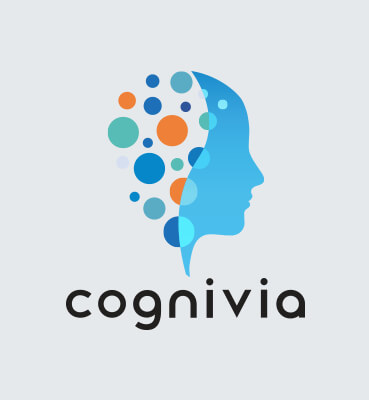Parkinson’s disease (PD) is one of the most common neurodegenerative disorders, as it affects 1-2 per 1000 of the population at any time(1). Although it is primarily a disease of the elderly, individuals have developed PD in their 30s and 40s(2). Gender differences pertaining to the incidence of PD are reflected in a 3:2 ratio of males to females, with a delayed onset in females attributed to the neuroprotective effects of estrogen on the nigrostriatal dopaminergic system(3,4). Current treatment is focused on symptomatic management(5) even if promising disease-modifying therapies are being developed(6,7).
Unfortunately, the placebo response in Parkinson’s Disease has proven to be a significant issue that compromises the efficacy evaluation of experimental therapeutics in clinical trials(8). Many Phase 2 and 3 clinical trials in PD are abandoned or fail because of the inability to demonstrate clear superiority of the tested drug versus placebo. In Parkinson’s disease, the placebo effect is mediated primarily by activation of the dopaminergic system, including both neural circuits involved in the reward system (ventral striatum) and the nigrostriatal pathway involved in motor control (dorsal striatum), which ultimately produces objective motor improvements(9). Moreover, the placebo effect is patient-dependent, strongly influenced by investigator-patient relationship, the patient’s expectations (in terms of drug efficacy and overall well-being), and the patient’s personality traits(10-16). This patient-specific nature of the placebo response interferes with patient response to investigational treatment and the ability to clearly demonstrate efficacy of the study drug.
Placebell©™ is Cognivia’s proprietary method to reduce the impact of the placebo response in clinical trials, based on a sophisticated assessment of patient psychology using the MPsQ (Multi-Dimensional Psychological Questionnaire) combined with a disease-specific algorithm built using machine learning. Cognivia has recently analyzed results of a proof-of-concept study to validate the Placebell©™ approach in Parkinson’s disease. In this study, patients took oral placebo daily for 3 months, and pharmacodynamic, fMRI imaging and genomic endpoints were evaluated. This global study involved 94 patients at 11 clinical sites in the United States, France and Belgium. This study was designed in consultation with key opinion leaders in Parkinson’s disease clinical trials. Results of this study indicate that the Placebell©™ model can explain between 11% and 44% of data variability related to the placebo response in multiple efficacy endpoints, including explaining 33 % of the variability in MDS-UPDRS part III, the primary endpoint of the study. The Placebell©™ model was statistically significant for 8 out of 10 efficacy endpoints, including the MDS-UPDRS part II, III, and IV. The score calculated by the Placebell©™ model can be used as a covariate in statistical analyses to reduce variability and increase study power, thus reducing the risk of clinical trial failure related to the placebo response. These data have been submitted to the International Congress of Parkinson’s Disease and Movement Disorders.
These positive results demonstrating the value of Placebell©™ in clinical trials for Parkinson’s disease are in addition to the previous results generated in peripheral neuropathic pain and osteoarthritis. Most recently, results from a sponsored, phase II randomized control trial in osteoarthritis demonstrated that Placebell can explain 35% of the data variabilityrelated to the placebo response in that study’s primary endpoint, the WOMAC-Pain score. Additional studies with Placebell are ongoing in ophthalmology, psychiatry and immunology, with potential applications in a wide variety of indications and therapeutic areas.
Taken together, these data are part of the mounting evidence that Placebell©™ is a proven and effective tool to minimize the negative consequences of the placebo response in clinical trials. As it only requires the inclusion of the MPsQ in the clinical study, Placebell is exceedingly simple to implement and carries no risk to the data analysis. To learn more or inquire about whether Placebell©™ could be useful in your upcoming study, please contact us.
References:
- Tysnes O, Storstein A. J Neural Transm (Vienna) 2017 Aug;124(8):901-905. doi: 10.1007/s00702-017-1686-y
- De Lau LM, Breteler MM. Epidemiology of Parkinson’s disease. Lancet Neurol. 2006;5:525–535. doi: 10.1016/S1474-4422(06)70471-9
- Miller IN, Cronin-Golomb A. Gender differences in Parkinson’s disease: clinical characteristics and cognition. Mov Disord. 2010;25:2695–2703. doi: 10.1002/mds.23388
- Rumayor MA, Arrieta O, Sotelo J, et al. Female gender but not cigarette smoking delays the onset of Parkinson’s disease. Clin Neurol Neurosurg. 2009;111:738–741. doi: 10.1016/j.clineuro.2009.07.012
- Oertel W, Schulz. B. J. Current and experimental treatments of Parkinson disease: A guide for neuroscientists. JNeurochem. (2016) 139 (Suppl. 1), 325–337 doi.org/10.1111/jnc.13750
- Poewe W, Seppi K, Marini K, Mahlknecht P. New hopes for disease modification in Parkinson’s Disease. Neuropharmacology 171 (2020) 108085. doi: 10.1016/j.neuropharm.2020.108085
- Dawson V, Dawson T, Promising disease-modifying therapies for Parkinson’s disease. Science Translational Medicine, 27Nov 2019, Vol 11, Issue 520 eaba 1659). doi: 10.1126/scitranslmed.aba1659
- Goetz CG, Wuu J, McDermott MP, Adler CH, Fahn S, Freed CR, Hauser RA, Olanow WC, Shoulson I, Tandon PK; Parkinson Study Group, Leurgans S. Placebo response in Parkinson’s disease: comparisons among 11 trials covering medical and surgical interventions. Mov Disord. 2008 Apr 15;23(5):690-9. doi: 10.1002/mds.21894
- Quattrone A, Barbagallo G, Cerasa A, Stoessl A.J. Neurobiology of Placebo Effect in Parkinson’s Disease: What We Have Learned and Where We Are Going. Movement Disorders, 2018, Vol. 33, No. 8, 1213. doi: 10.1002/mds.27438
- de la Fuente-Fernández R, Schulzer M, Stoessl AJ. The placebo effect in neurological disorders. Lancet Neurol. 2002;1(2):85-91. doi: 10.1016/s1474-4422(02)00038-8
- de la Fuente- Fernández R, Stoessl AJ. The placebo effect in Parkinson’s disease. Trends Neurosci. 2002;25(6):302-306. doi: 10.1016/s0166-2236(02)02181-1
- de la Fuente-Fernández R, Schulzer M, Stoessl AJ. Placebo mechanisms and reward circuitry: clues from Parkinson’s disease. Biol Psychiatry. 2004;56(2):67-71. doi: 10.1016/j.biopsych.2003.11.019
- Gruber-Baldini AL, Ye J, Anderson KE, Shulman LM. Effects of optimism/pessimism and locus of control on disability and quality of life in Parkinson’s disease. Park Relat Disord. 2009;15(9):665-669. doi: 10.1016/j.parkreldis.2009.03.005
- Lidstone SC, Schulzer M, Dinelle K, et al. Effects of expectation on placebo-induced dopamine release in Parkinson disease. Arch Gen Psychiatry. 2010;67(8):857-865. doi: 10.1001/archgenpsychiatry.2010.88
- Keitel A, Wojtecki L, Hirschmann J, et al. Motor and cognitive placebo-/nocebo- responses in Parkinson’s disease patients with deep brain stimulation. Behav Brain Res. 2013; 250: 199-205. doi: 10.1016/j.bbr.2013.04.051
- Schmidt L, Braun EK, Wager TD, Shohamy D. Mind matters: placebo enhances reward learning in Parkinson’s disease. Nat Neurosci. 2014;17(12):1793-1797. doi: 10.1038/nn.3842





